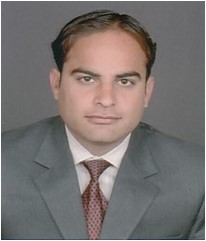
Mr. Saurabh Saraswat
Assistant Professor
Dept. of Pharmacy, SHS .
Every day, we are practicing self-medication in the form of self-care of our health. Self-medication has traditionally been defined as “the taking of drugs, herbs or home remedies on one’s own initiative, or on the advice of another person, without consulting a doctor.”
Major problems related to self-medication are wastage of resources, increased resistance of pathogens and causes serious health hazards such as adverse reaction and prolonged suffering. Antimicrobial resistance is a current problem world-wide particularly in developing countries where antibiotics are available without any prescription. It would be safe, if the people who are using it, have sufficient knowledge about its dose, time of intake, side-effect on over dose, but due to lack of information it can cause serious effects such as antibiotic resistance, skin problem, hypersensitivity and allergy. Hence, developing country like India where we have poor economic status, education status as well as poor health care facilities. People have less knowledge regarding risks associated with their self-medication. We are on the edge of sword whether to promote self-medication or not.
Role of Pharmacist in Preventing Risks Associated with Self-medication:
Pharmacists play a valuable role in identifying, solving and preventing drug-related problems for the purpose of achieving optimal patient outcomes and quality of life. Ambulatory based pharmacists have the opportunity and responsibility to foster safe, appropriate, effective and economical use of all medications, especially those therapies patients are self-selecting. Pharmacists should guide their customers to consult the physician before taking any medication by self. Pharmacist is the one who work on three main therapeutic aspects of professionalism in his daily practice: Information, therapeutic advice and education.
Information
Whenever health professionals are prescribing drugs, he should give proper instructions and explain for what it is prescribed so that it will be helpful for the patient to understand and making his own decisions. Given information should be at patient’s comprehension level so that it will be helpful for them to understand its management.
Therapeutic advice
Lack of therapeutic compliance is a serious problem in both acute and chronic treatments and reflects a poorly-understood or incomplete description of the treatment aims. If patients are not well-informed they are unlikely to use medication correctly. However, if the directions for use and the limitations of a given drug are explained-for example, dose, frequency of dose, treatment course, how to take it, etc., then patients have a set of guidelines which will help them to use the drug correctly, both now and in the future. Inappropriate and erratic self-medication, along with lack of compliance, will only be reduced if patients are informed and understand clearly why certain advice has been given.
Education
Inappropriate self-medication is the result of the medical model from which people have learnt. Proper health education should be given to the patients. By regularly adopting an educational attitude we can have an effect on large sectors of the population, on people who, in turn, may directly influence their friends and family. This aspect is of particular importance with respect to the self-medication of children by their parents or takes cares
Improved knowledge and understanding about self-medication may result in rationale use and thus limit emerging microbial resistance issues.
